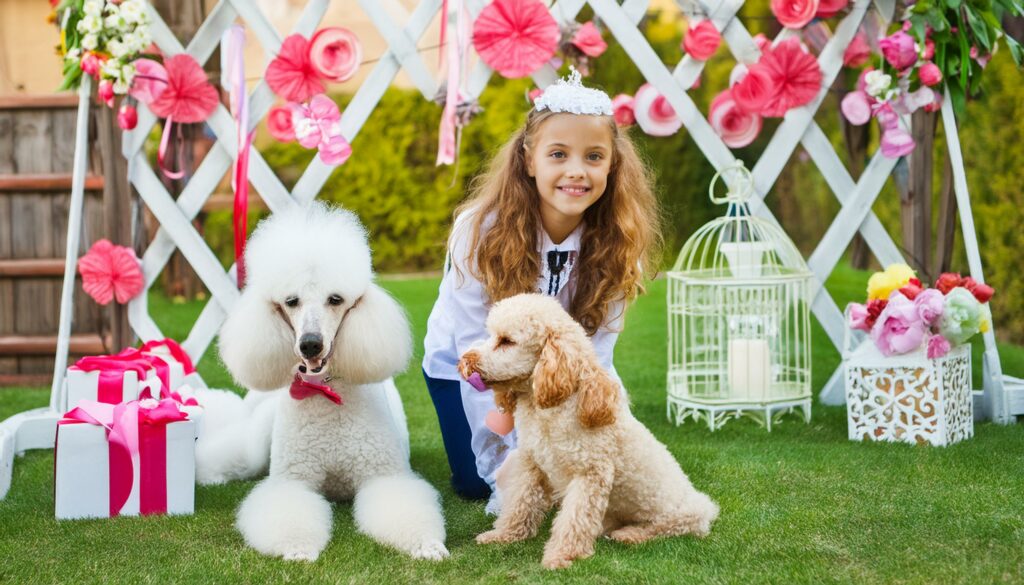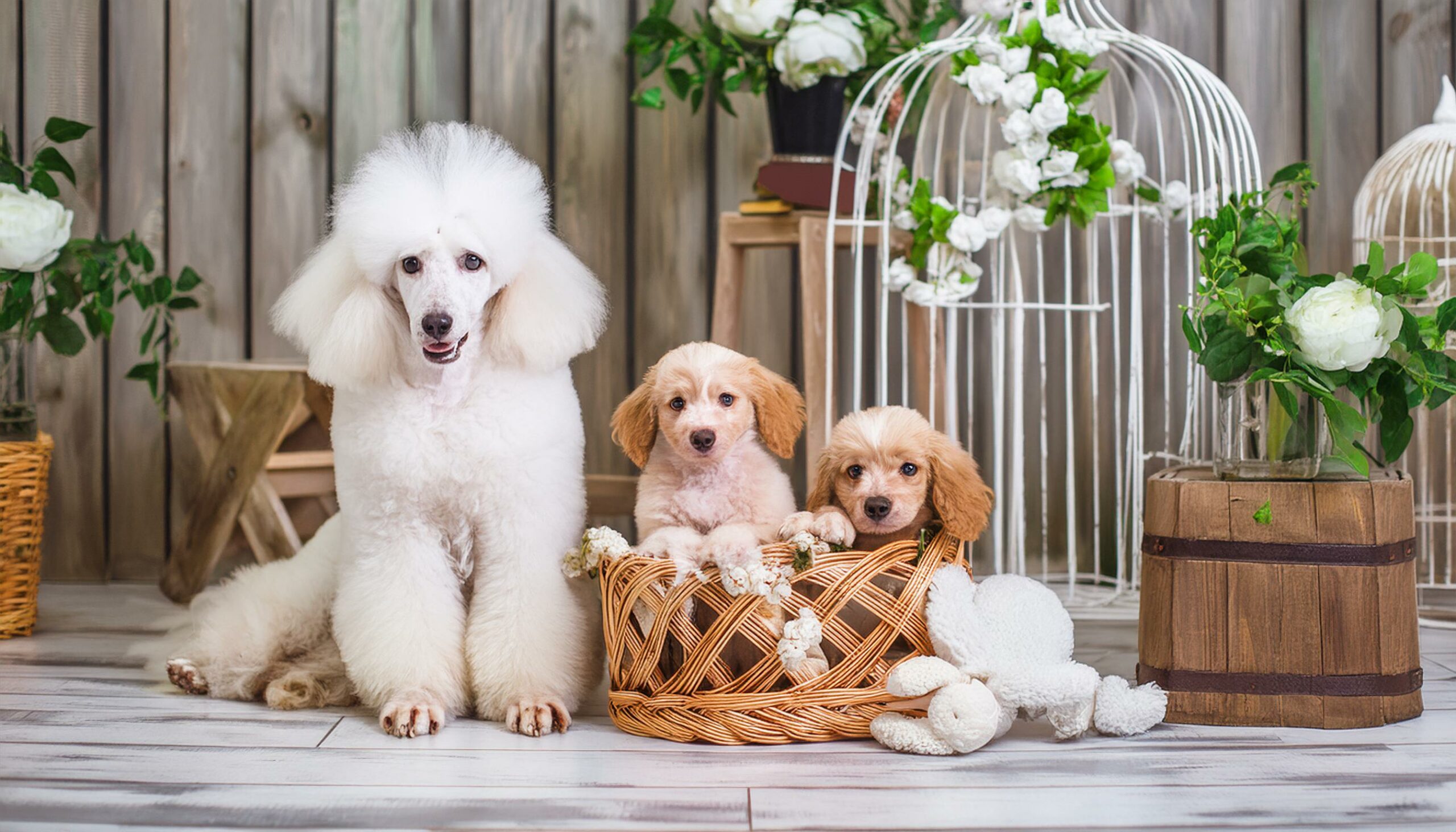Choosing the right pet is a significant decision that impacts your lifestyle, happiness, and overall well-being. Among the myriad options available, the Poodle stands out as a popular choice for many prospective pet owners. In this comprehensive guide, we will delve into the question: Is a Poodle a good pet? By examining the characteristics, suitability, benefits, challenges, and essential tips for owning a Poodle, you’ll gain valuable insights into whether this breed is the perfect fit for your home and family.
Characteristics of Poodles
Poodles are renowned for their distinctive appearance, intelligence, and versatility. Available in three sizes – standard, miniature, and toy – Poodles boast a curly, hypoallergenic coat that sets them apart from other breeds. Their elegant stature, combined with an alert and dignified demeanor, makes them instantly recognizable. Beyond their physical attributes, Poodles are highly intelligent and trainable, excelling in various canine sports and activities. Their keen intellect and eagerness to please make them ideal companions for individuals seeking a responsive and engaging pet.
Suitability as a Pet
When considering a Poodle as a pet, it’s essential to evaluate its compatibility with your lifestyle and preferences. Poodles are known for their adaptability to different environments, making them suitable for both urban dwellers and those residing in rural settings. Their hypoallergenic coat is a boon for allergy sufferers, allowing them to enjoy the companionship of a dog without the associated discomfort. However, it’s important to note that Poodles require regular grooming to maintain their coat’s health and prevent matting. Additionally, prospective owners should be prepared to provide ample mental and physical stimulation to keep their Poodle happy and content.
Benefits of Having a Poodle as a Pet

Owning a Poodle offers numerous benefits beyond their charming appearance. Their unwavering loyalty and affectionate nature make them cherished members of the family. Poodles thrive on human companionship and excel in roles such as therapy dogs, providing comfort and support to those in need. Their intelligence and trainability open doors to a myriad of activities, including obedience competitions, agility trials, and even canine dancing. Furthermore, the presence of a Poodle in the household can have positive effects on one’s mental and physical well-being, fostering a sense of purpose and companionship.
Potential Challenges
While Poodles possess many desirable traits, they also come with their share of challenges. Their curly coat requires regular grooming to prevent matting and tangling, which can be time-consuming and costly. Additionally, Poodles are prone to separation anxiety and may exhibit destructive behavior when left alone for extended periods. Proper training and socialization are essential to address these issues and ensure a well-adjusted and well-behaved pet. Prospective owners should also be aware of the breed’s predisposition to certain health issues, such as hip dysplasia and progressive retinal atrophy, and be prepared for potential veterinary expenses.
Tips for Owning a Poodle
To maximize your enjoyment of life with a Poodle, it’s important to establish a solid foundation of training, socialization, and care. Early socialization exposes your Poodle to various people, animals, and environments, helping them develop into confident and well-rounded individuals. Consistent training using positive reinforcement methods builds trust and strengthens the bond between you and your pet. In terms of grooming, regular brushing and grooming sessions are necessary to keep your Poodle’s coat in optimal condition and prevent matting. Providing ample exercise, both mental and physical, is crucial to keep your Poodle stimulated and prevent boredom-induced behaviors.
Conclusion
In conclusion, the decision to welcome a Poodle into your life is not one to be taken lightly. While this breed offers many desirable qualities, including intelligence, loyalty, and adaptability, it also requires commitment, patience, and dedication on the part of the owner. By carefully weighing the pros and cons outlined in this guide and taking proactive steps to meet your Poodle’s needs, you can enjoy a fulfilling and rewarding relationship with your canine companion.
FAQs
Are Poodles good with children?
Poodles are generally good with children, especially when raised with them and properly socialized. They can be gentle and playful companions for kids of all ages.
Do Poodles shed a lot?
Poodles are known for their minimal shedding, making them a great choice for individuals with allergies or those who prefer a cleaner home environment.
How much exercise do Poodles need?
Poodles are energetic dogs that require daily exercise to stay happy and healthy. Aim for at least 30 minutes to an hour of physical activity, such as brisk walks or playtime in the yard.
Are Poodles prone to any health issues?
While generally healthy, Poodles can be susceptible to certain genetic conditions like hip dysplasia, progressive retinal atrophy, and bloat. Regular veterinary check-ups are essential to monitor their health.
Can Poodles live in apartments?
Yes, Poodles can adapt well to apartment living as long as they receive enough mental stimulation and exercise. Regular walks and interactive play sessions can help meet their activity needs even in smaller spaces.
